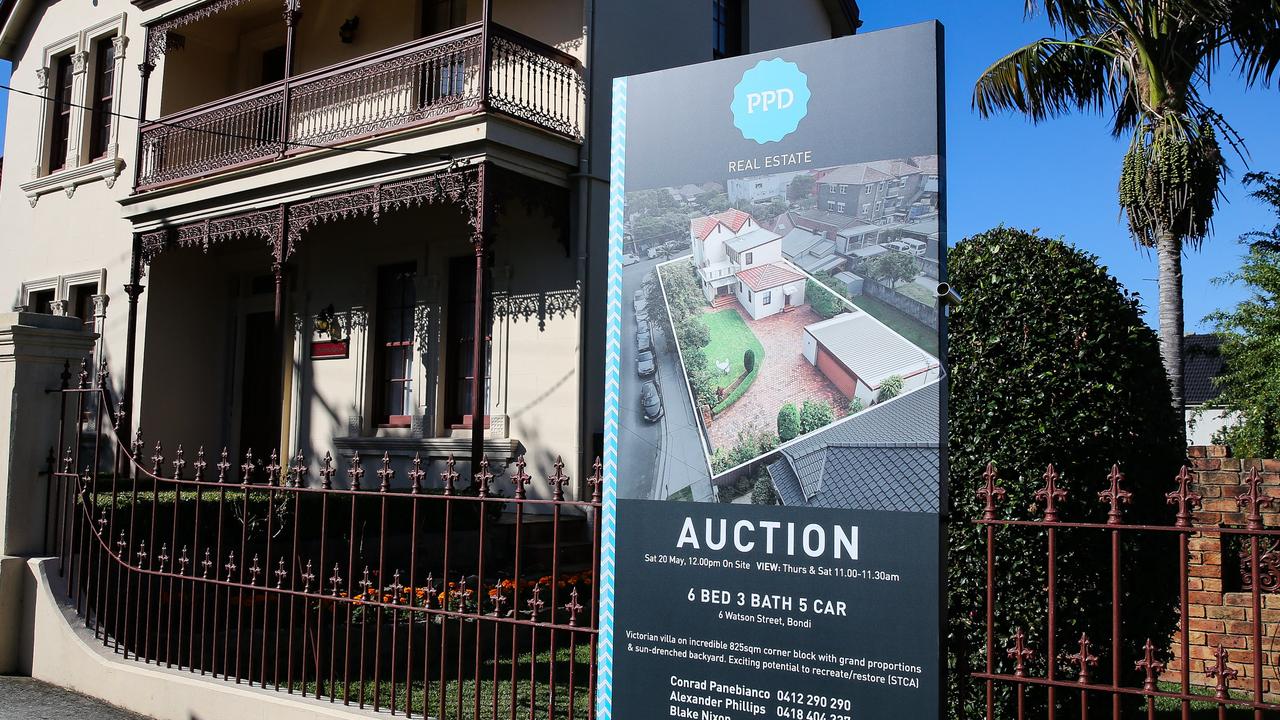AMA reveals worst Australian public hospital waiting lists
Izzy McGarry’s hearing and speech is disrupted after waiting nearly a year for surgery. She is one of many who need medical help. See our worst hospital waiting lists.
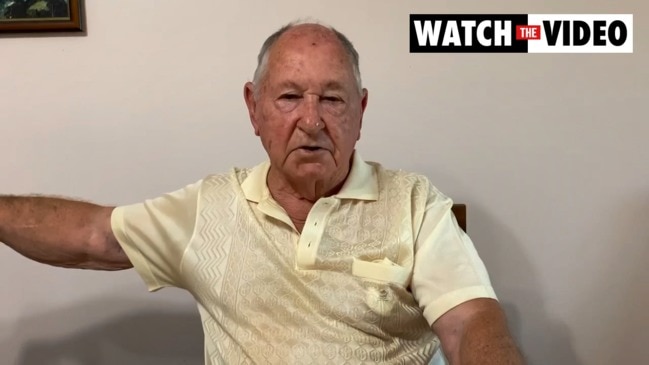
Federal Election
Don't miss out on the headlines from Federal Election. Followed categories will be added to My News.
Exclusive: Patients are waiting more than 750 days to have cataracts removed and 652 days for hip and knee replacements as public hospitals buckle under the Covid-19 surgery backlog.
And despite our ageing population, the number of hospital beds available to those over 65 is falling, with on average 15 beds in our public hospital per 1000 people, compared with 30 beds per 1000 people 30 years ago.
The Australian Medical Association on Saturday releases its Public Hospital report card that shows 754,000 people are waiting for surgery and the proportion waiting more than a year for surgery has tripled.
Even lifesaving surgery is being delayed.
One in three patients needing semi-urgent surgery for conditions such as heart valve replacements or craniotomy for an unruptured brain aneurysm are waiting longer than the recommended 90 days.
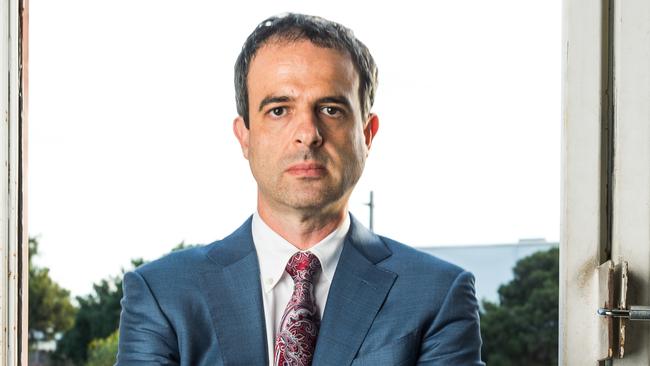
The AMA wants the federal government to lift its funding of public hospitals from 45 to 50 per cent in next week’s federal budget and wants to make hospital funding a federal election issue.
“Our public hospital capacity must be expanded to meet the demands of a population that is increasing in size, age and suffering from multiple chronic health issues,” AMA president Dr Omar Khorshid said.
“This needs to be backed by greater investment in primary care, giving GPs the support they desperately need to keep people out of hospital”.
During Covid most states imposed elective surgery bans to free up beds for pandemic patients and this made already bad wait times even longer.
A News Corp investigation has found the longest waits are for ophthalmology surgeries such as cataract removal where one in 10 patients in Tasmania wait more than 749 days, in the NT its 448 days, NSW 405 days, South Australia 363 days, the ACT 345 days, Queensland 336 days, and Victoria 305 days.
One in 10 hip and knee replacements also face a staggering wait of more than 652 days in Tasmania, 497 days in the ACT, 424 days in NSW, 370 days in Victoria, 363 days in Queensland, 333 days in Western Australia and 265 days in the Northern Territory.
Fifty per cent of all patients who needed surgery in Australia waited more than 48 days in 2020-21, up from 39 days the previous year.
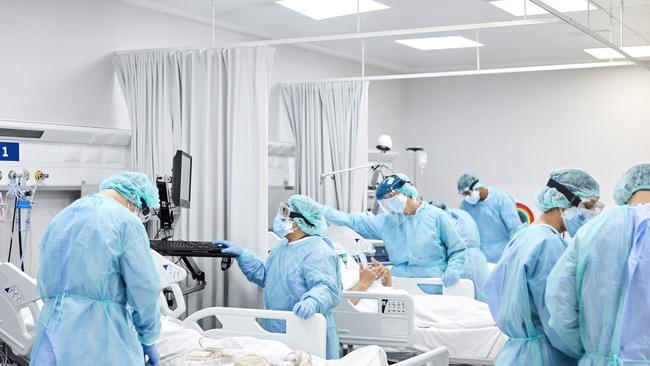
The real wait times are even longer with the AMA revealing there is a hidden waiting list – patients first have to wait months to see a surgeon before they are even put on a hospital’s waiting list.
Most states do not report this but Tasmania does.
In Tasmania there are more than 59,000 patients waiting to see a specialist in a public health system, including patients waiting close to 800 days to see a neurosurgeon with an urgent referral.
Hospital emergency departments are also under pressure with more than one in three people waiting longer than the clinically-recommended 30 minutes to receive urgent care, the AMA report card shows.
“One in three people who present to an ED will wait longer than four hours to be either discharged or admitted. This is why we see increased ramping of ambulances in front of our hospitals and why patients are suffering unnecessarily,” Dr Khorshid said.
Every delayed surgery has an impact, leading to loss of quality of life and further deterioration of health and delaying even a minor surgical intervention to improve the hearing of a child may mean they miss crucial physical and mental development, he said.
“Australia urgently needs a recovery plan for its public hospital system. We need appropriate funding to clear the backlog of elective surgeries, and to build enough capacity to meet the growing needs of the community,” he said.
TWO-YEAR-OLD IZZY CAN’T SPEAK BECAUSE OF SURGERY DELAY
Little Izzy McGarry waited nearly a year to have surgery to fix her cleft palate and insert grommets when it should have been done in 90 days.
The delay caused by a backlog in the hospital system meant the toddler suffered moderate hearing loss in both ears for almost half of her life disrupting her speech and language development at the most crucial time.
“She has a severe speech sound disorder and is unable or has difficulty producing a wide range of sounds,” her mother Siobhan Sefton said.
“At the moment she can only produce vowel sounds and also an M and then in all other sounds, she doesn’t have the ability to produce and that is a result of her cleft palate, but also her hearing delays,” Ms Sefton said.
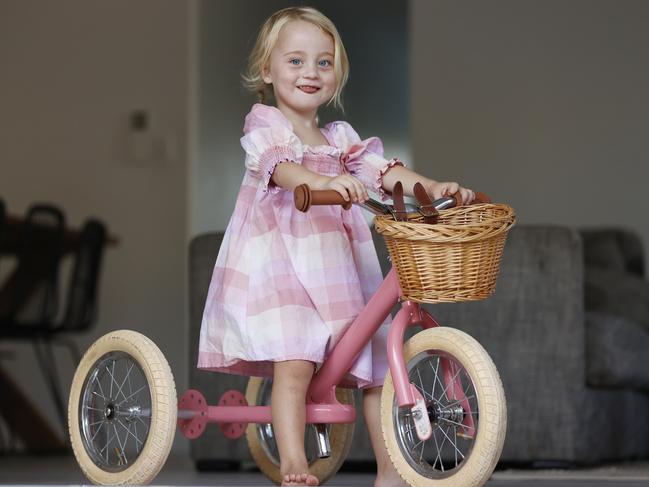
“It’s quite frustrating, and it’s very disappointing because it’s really challenging for her socially to chat with her peers and to engage in appropriate play when she does have these speech and language difficulties.”
As a school teacher her mother knows the importance of early intervention but even though the family booked Izzy in for extra speech therapy, progress was small because she needed the surgery to hear properly.
The delay was so long Izzy, now two, had to access a hearing aid through Hearing Australia which would not have been needed if she had been given the grommets.
Izzy’s operation went ahead on March 9 this year and her progress “has been astonishing, really” her mother said.
“The health system has failed her in terms of not giving her the adequate care and treatment that she needs to be able to develop and thrive and we are going to have to work extremely hard to undo this period,” Ms Sefton said.
The family strongly believes more hospital funding is required.
“If we’ve got more staff and more doctors and surgeons and nurses and a better team to deal with the needs of the Australian public then that means that people are able to access health care within the time frame they need it. Absolutely this needs to be addressed,” she said.
More Coverage
Originally published as AMA reveals worst Australian public hospital waiting lists



